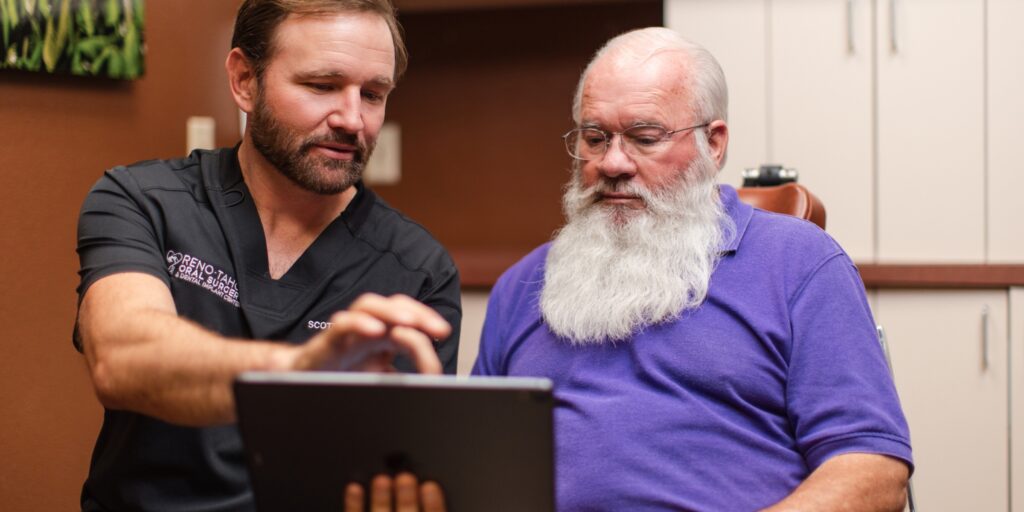
It is perfectly natural to feel nervous about surgery.
We offer various anesthesia techniques to eliminate discomfort and control anxiety. Our team is dedicated to ensuring that your experience is as pleasant as possible.
What Anesthesia Options Are Available?
All oral surgery is performed under appropriate anesthesia to maximize your comfort. The method of anesthesia is determined by the nature of the procedure and your level of apprehension. Anesthesia options, as well as any potential risks, will be discussed with you prior to your procedure.
Nitrous Oxide
One option that we are pleased to offer is nitrous oxide, more commonly known as “laughing gas.” Nitrous oxide can be a great option to take the edge off, helping anxious patients prepare for IV sedation and the remainder of their surgical procedure.
IV Sedation
Our practice offers multiple levels of anesthesia, from very light to heavy, administered through an IV. Continuous IV sedation promotes comfort throughout your surgical procedure and also prevents you from having any awareness or memory of the surgery.
Who Provides Anesthesia During My Procedure?
All anesthesia is administered by our highly trained and well-credentialed doctor, Dr. Redlinger, who has the training, experience, and certification needed to put your safety first. While phlebotomy-trained nurses may begin the IV, only our doctor actually administers anesthesia.
Where Will My Sedation Occur?
All of our oral surgery procedures are performed in our private, comfortable, state-of-the-art treatment rooms, which are well-supplied with IV sedation monitoring equipment and other important tools to ensure your comfort and safety.
How Should I Prepare For My Sedation?
Can I Eat or Drink Prior To My Surgery?
All anesthesia patients must fast for a full eight hours before surgery. This ensures that there is no food in the stomach that might accidentally get lodged in the lungs, which can lead to significant complications as anesthesia is administered.
Do I Need To Stop My Medications?
There are certain medications and supplements that may increase your surgical risk, including your risk of bleeding. Your doctor will ask for a complete medication list before the procedure and advise you on any medications that you need to put on pause. Otherwise, you are welcome to take your medications as normal.
What If I Become Sick or Catch a Cold Prior To Surgery?
Lung infections can lead to serious risks during surgery. Often, the symptoms of a lung infection linger even after your symptoms diminish, making it critical to let your doctor know of any recent respiratory illness. We want to keep you safe, and in some situations, that might mean delaying your surgery for a few days to ensure your body has time to heal from its infection.
Do I Need Someone To Take Me Home?
You can anticipate some grogginess following your surgery. To ensure you make it home safely, we ask that you have someone to accompany you who can give you a ride home.
What Should I Expect After Sedation?
When you leave our practice, you will be awake but still a bit groggy. You can expect this grogginess to continue for a few hours, but most patients return to their normal level of alertness by the following day.




